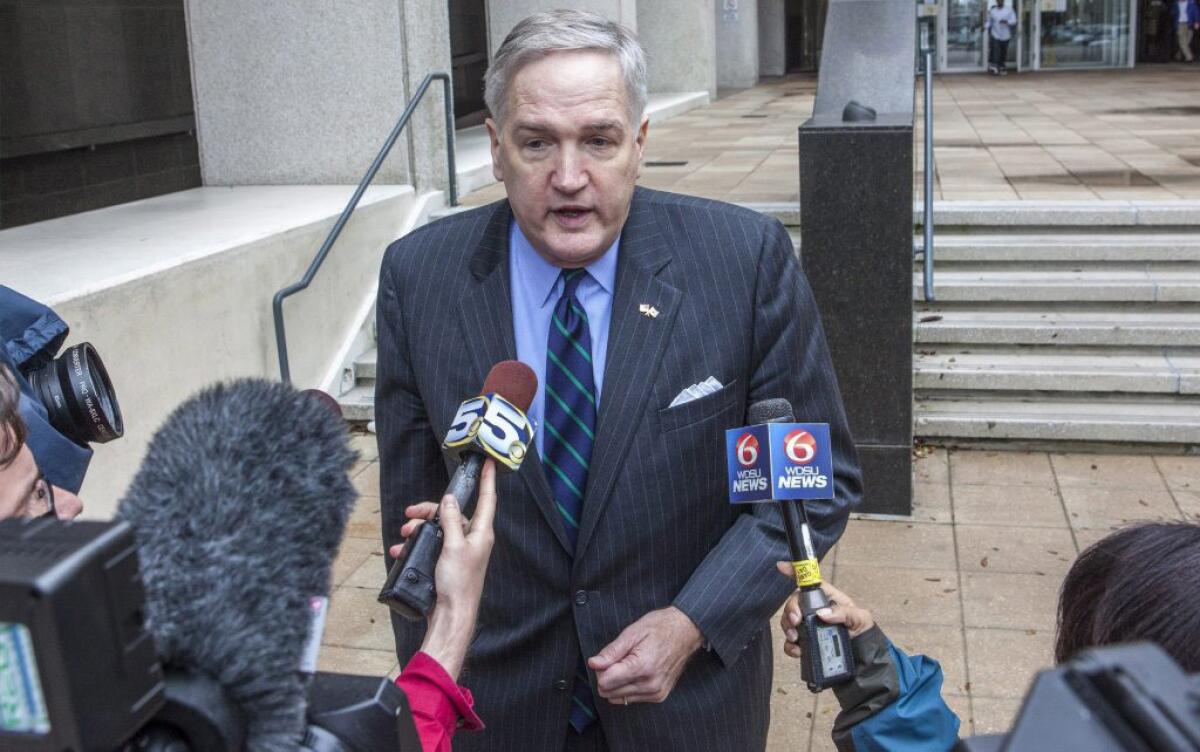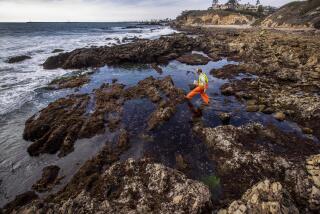UC expert questions BP management’s role in gulf oil spill

- Share via
An expert witness for those suing BP over the nation’s worst environmental disaster criticized the company’s investigation of the oil spill in the Gulf of Mexico as the civil trial entered its second day.
UC Berkeley engineering professor Robert Bea was the first witness in the day’s proceedings and told the federal court in New Orleans that BP management’s role was not examined. He argued that the company’s own investigation of the 2010 spill failed to look at systemic causes, which would include management’s actions and the company’s cost-cutting culture.
Bea, a noted expert who also investigated the 1989 Exxon Valdez oil spill and the levee breaches in New Orleans after Hurricane Katrina, used terms such as “tragic” and “egregious” in describing how BP did not apply its own safety management program for the oil rig that exploded in the gulf, eventually pouring 4 million barrels of oil into the waters and shore.
Bea is also a former consultant for the London-based BP.
The civil trial is being held before federal District Court Judge Carl Barbier, who will decide whether BP’s actions were negligent or grossly negligent. That determination will determine the level of financial penalty the company could face.
Under the Clean Water Act, BP would be required to pay $1,100 for each barrel of oil spilled, but the fine would rise to $4,300 per barrel if the company were found to be grossly negligent.
Estimates of the fines and penalties involved range from the company’s figure of less than $5 billion to more than $17 billion, the number used by the national government and the states which are suing along with the businesses hurt by the spill. The trial is expected to take months unless there is a settlement, which could come at any point.
The Deepwater Horizon drilling rig exploded on April 20, 2010, and 11 crew members were killed. The Macondo well continued to spill oil for months.
BP studied the incident and its findings are known as the Bly Report. The company probe looked at the immediate causes of the blowout and how the crew and equipment performed, but did not look at management decisions, Bea said.
“This investigation, the Bly investigation, in fact, did not include systemic cause, did it?” asked Robert Cunningham, a plaintiff’s attorney, according to media reports from the courtroom.
“That’s correct,” Bea replied, according to the Wall Street Journal..
“Is that a full and complete investigation of process safety?” Cunningham asked.
“No,” Bea said.
A second trial, scheduled for the fall, will determine how much oil leaked into the Gulf of Mexico. Together, they will determine the size of fines companies face under the Clean Water Act.
ALSO:
Blackface costume for Purim party backfires on N.Y. lawmaker
Wisconsin police crack 1957 case of 7-month-old infant’s death
Facebook asked to take down pages abusing Sandy Hook victims
More to Read
Sign up for Essential California
The most important California stories and recommendations in your inbox every morning.
You may occasionally receive promotional content from the Los Angeles Times.













